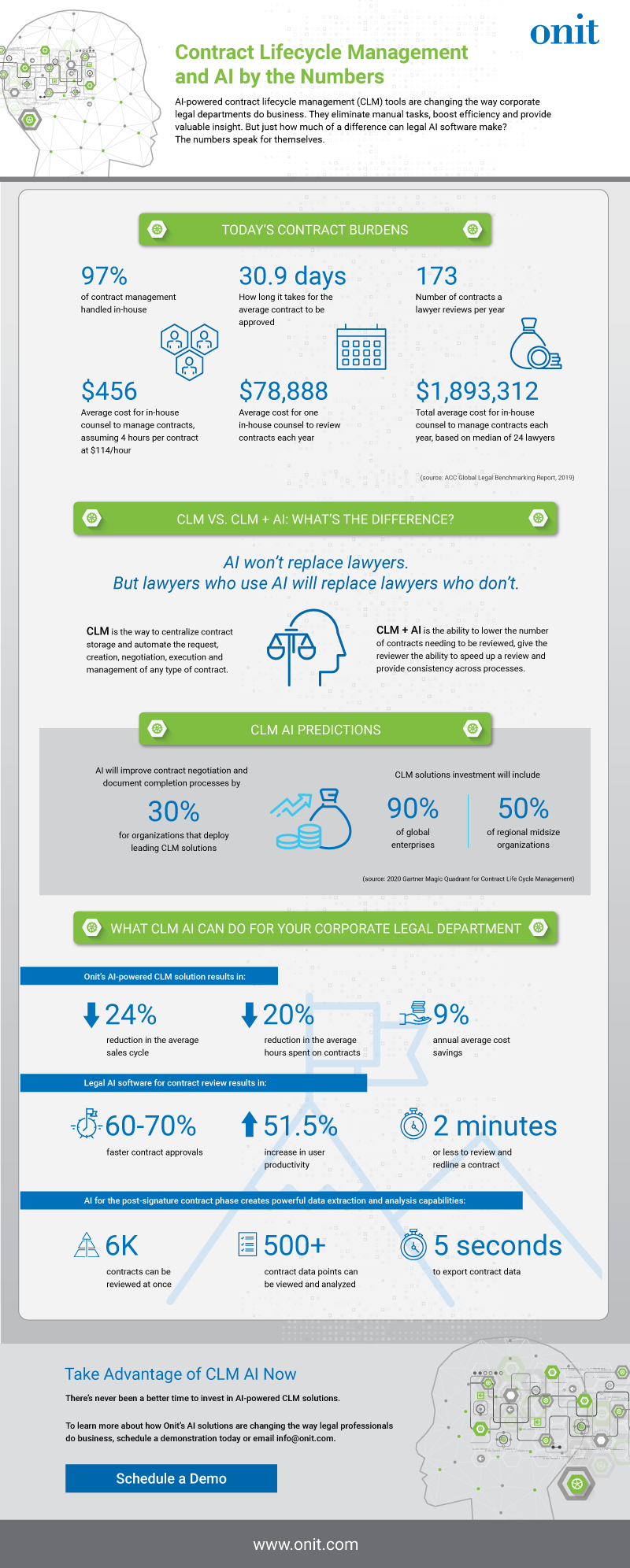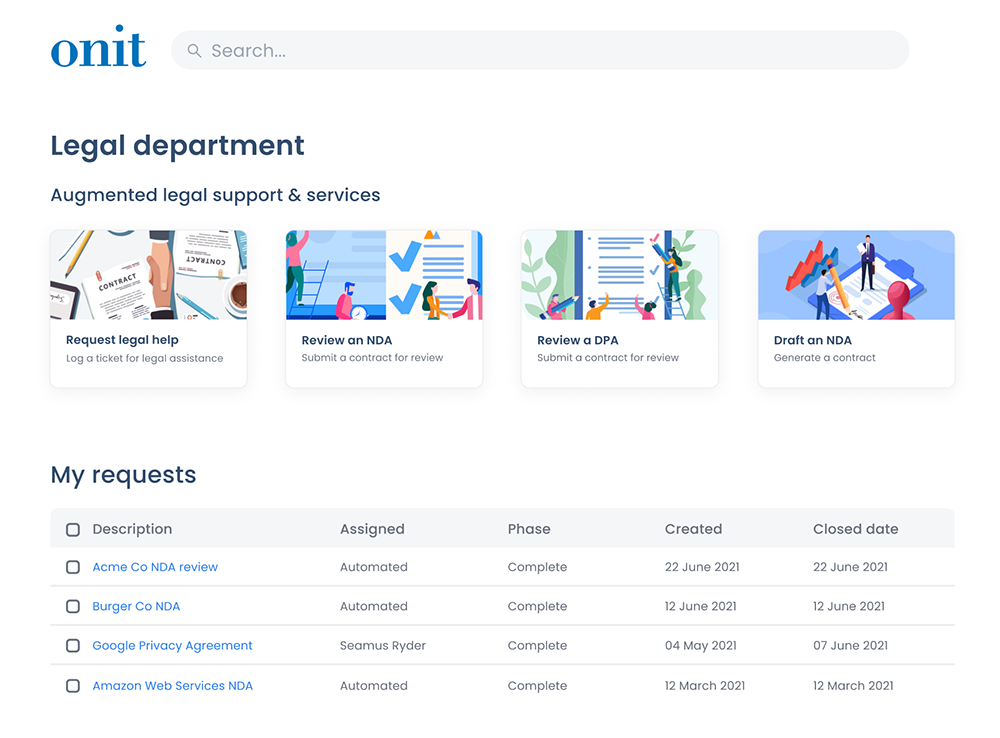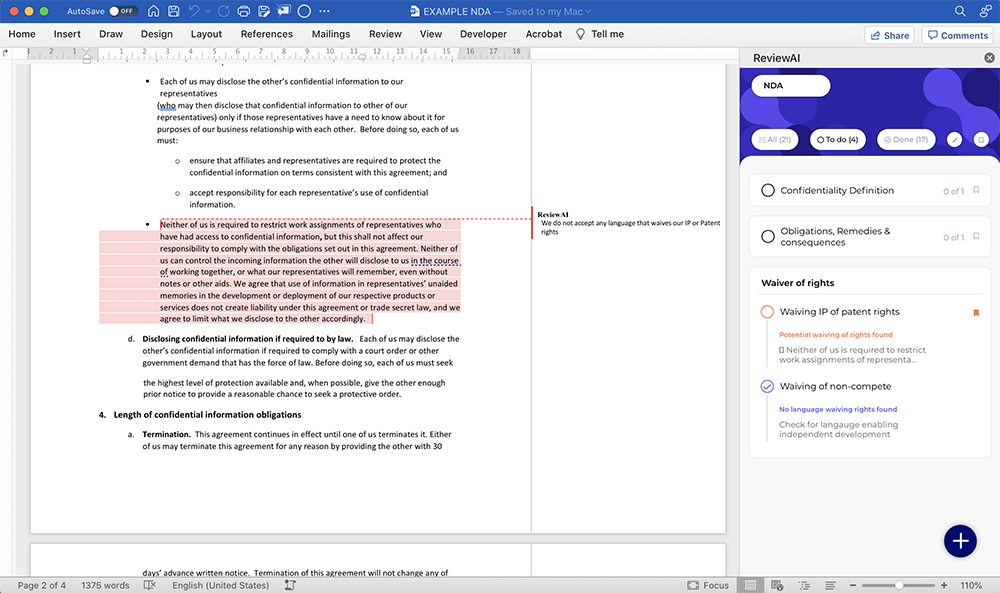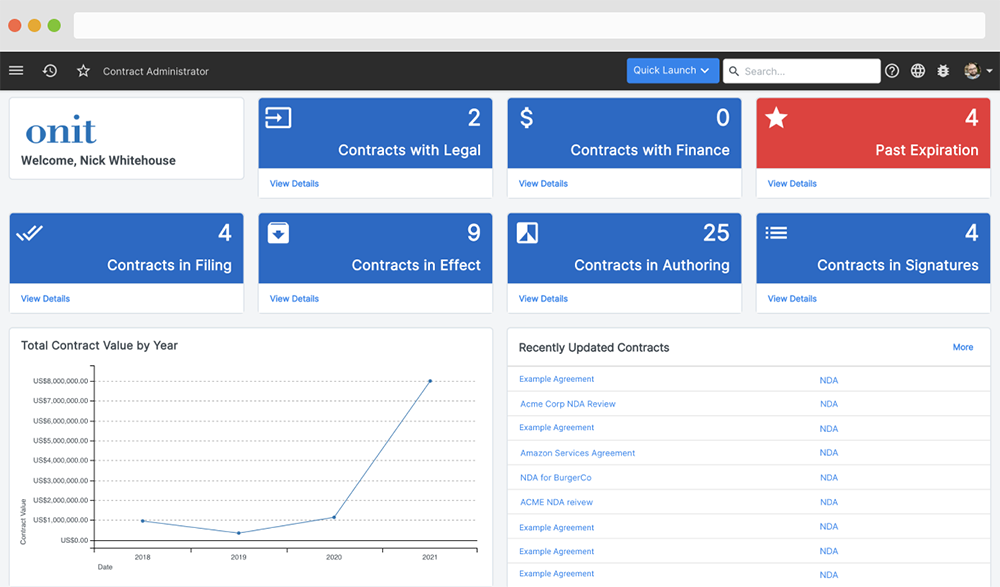
As we ease into month nine of 2021, here are some of the most interesting and timely pieces of corporate legal department news. In this edition, we look into the NDA strain, how COVID and diversity impact GCs and law firms, the numbers behind contract management, legal analytics and more.
1. Are GCs Now Chief Medical Officers Too?
The pandemic has been responsible for many of the most drastic return to work policies in history. But it’s also been changing the roles of chief legal officers. This article examines how GCs are now considering COVID-related ethical questions and the impact of vaccinations on policy decisions and return to office working. Interestingly, some GCs feel as if they are ad hoc medical officers since they need to interpret the proliferation of governmental guidance issued around COVID.
Source: Law.com
2. Cold, Hard Contract Lifecycle Management Numbers [Infographic]
$1,893,312. That’s the average cost for in-house counsel to manage contracts each year. Why so pricy? Contracts often come with unrefined and time-consuming processes, creating a real drain on attorneys and gnawing away at their valuable time. This infographic presents the numbers behind the burden, who is estimated by analyst to use contract lifecycle management and AI and the real-life benefits of adopting both.
Source: Onit blog
3. Corporate Legal Department News Update: Progress Still Lacking in Law Firm Diversity
Corporate legal departments prioritizing diversity for outside counsel may find this recent survey disappointing. According to the Law360 Diversity Snapshot 2021 survey, there’s been only an “incremental change” in diversity numbers. The report found that 18% of law firm attorneys are minorities, a statistic that has crept up by only four percentage points over seven years. Robert Ambrogi digs into reasons and solutions.
Source: LawSites
4. The New Champions of Driving Business Value Are Corporate Counsel
Digital transformation – either a large initiative or a smaller-scale, specialized project like NDA automation – can positively impact corporate legal departments. According to this article, the concept invites attorneys to step forward as agents of change. In-house attorneys have a chance to champion innovation, advance digital transformation and bring demonstrable value to their business. This article breaks down the fundamentals of becoming a change agent, including where to start, the keys to success and driving digital transformation.
Source: Corporate Counsel
5. Now Hiring: A Data Scientist?
In April, Gartner wrote about the rise of analytics and how legal leaders should tap into a new skill set to advance capabilities. According to the post:
“Legal should hire data scientists only once it has a sufficient number of legal analytics use cases, a solid foundation of data and technology, and a culture that supports advanced analytics.”
If your corporate legal department isn’t quite ready to go that route, it can still find insights into the data it gathers every day. Above the Law examines the demand for legal analytics, the Moneyball effect and news about a recent acquisition that expands legal spend analytics with benchmarking, market intelligence and AI.
Source: Above the Law
Bonus Resource: Avoiding the NDA Strain [Podcast]
The average cost to draft, review, negotiate and file a single NDA is between $114 and $456. Multiply that cost across 500 or 100,000 NDAs a year, and the price tag skyrockets quickly.
And don’t discount the mental burden NDAs take on attorneys.
In 2018, the American Bar Association studied 15,000 attorneys and found that nearly 30% struggled with depression and burnout. What causes depression and burnout? Tedious work, long hours and high stress. It’s not hard to see how high-volume NDAs contribute to those conditions.
In this podcast, AI and digital transformation expert Nick Whitehouse discusses a unique and quick way to avoid the NDA strain with automation and AI.














